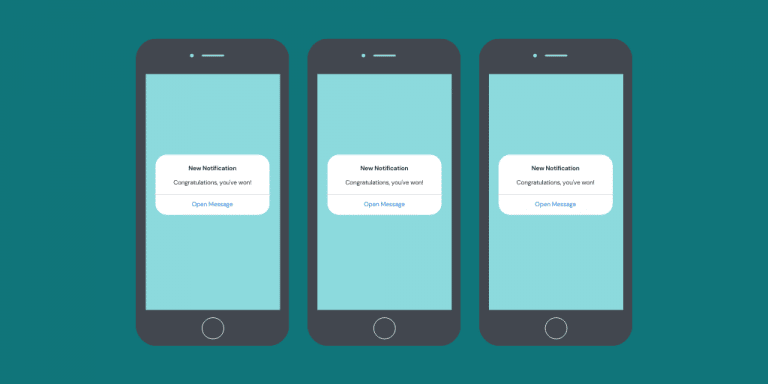Cold call scams
Netsafe receives a lot of reports from people about cold call scams – these are run by scammers who contact you on your phone. These scammers often try to sell you a fake product or service, or pretend to be from a legitimate organisation (like a telco) or a government agency. These scammers are trying…

Netsafe receives a lot of reports from people about cold call scams – these are run by scammers who contact you on your phone. These scammers often try to sell you a fake product or service, or pretend to be from a legitimate organisation (like a telco) or a government agency. These scammers are trying to get payment or personal details from you and our advice should help you stay safe. If you have been targeted by a scam call, you can report it by completing an online report form or by emailing [email protected]
Common claims by cold call scammers
Cold call scams are consistently one of the most reported scams to Netsafe. They often are different in nature, but generally take the following form:
- There’s a problem with your computer (we have specific advice about cold calling PC tech support scams)
- You have a refund or payment due to you (e.g. tax refunds from IRD)
- You have an invoice or bill you need to pay
- There is a problem with your visa or employment (e.g. your visa has expired)
We’ve also received reports in the wake of natural disasters or tragedies, where scammers have called the affected region claiming to be from insurance companies.
Identifying cold call scams
A scam is any scheme designed to trick people out of money or steal their personal information. There are a few tell-tale signs you might be being scammed in a cold call:
- The call will be unexpected
- The caller may be friendly and try to make you think they’re local by commenting on local events and weather
- They may also be intimidating and threatening (e.g. if they’re claiming there is a problem with your visa, or they are requesting payment of an ‘overdue’ bill)
- The scammers who call may know specific details about you, and have likely gained this information through public and stolen data sources
- Even though the scammer is likely based overseas, the phone number may appear as a local number
- They may ask you to pay an administration fee up-front for you to receive something – e.g. a tax refund, prize or inheritance
- They will often pressure you into making a quick decision – either by threat (e.g. legal action, or deportation), or by saying the offer or deal expires soon
What to do if you’re contacted in a cold call scam
- Politely say “no thanks” and hang up the phone – you may need to do this a few times
- Don’t engage in a conversation, try to ‘trick’ the scammer or tell them off – you may put on a ‘harass’ list
- If you’re unsure whether it is a scammer or a legitimate organisation, hang up and call the organisation using the official helpline number
- If you are not sure, contact Netsafe and we’ll help you work out if the contact is legitimate
- If you know it’s a scam, you can report a cold calling scam to us at netsafe.org.nz/report to help us keep track of scam trends in New Zealand. We’ll use this information to educate people about scams, and to help people who have been affected by them.
What to do if you’ve given money or information
- If you’ve made payment, or given bank account or credit card details notify your bank immediately
- If you’ve given passwords or information that may be used to access online accounts, change all of your passwords immediately
- If you’ve made payment using Prezzi Card or Western Union it is unlikely you’ll be able to get your money back
- If you’ve provided any other personal information, have a look at this Identity Theft Checklist as a guide on what could happen with your information. If you believe you were exposed to identity theft, we recommend you contact iDCare as they provide free support.
Protecting personal information
Online and offline you should always protect any information about you that could be used to access your accounts, build a fake presence or impersonate you in any way, including the following:
- Login details and passwords to any online account including banking, email, social media and trading sites
- Bank account and credit card details (always use secure payment methods from trusted organisations)
- Address
- Phone number
- Birthdate
- Personal information that could be used to guess security questions on online accounts
Read Netsafe’s advice to help you improve your online privacy.
Spark cold call scams
Netsafe and Spark developed a brochure to help you spot a scam, and provide advice on how to stay safe and what to do if you think you have been scammed including a six-step infographic. The brochure has also been translated into simplified Chinese, you can download it here.
Spark also have a webpage that lists real-time scam alerts, so that customers are able to see the latest reports of scammers posing to be from Spark.
Disrupting cold call scams
Report a cold call / phone scam
Netsafe can’t open investigations or track scammers, but we can offer support and advice for people who have lost money in a scam, or think they are about to. This includes letting you know the steps you can take depending on the scam you’re in and giving you advice about how to stay safe in future. You can report a scam to www.netsafe.org.nz/report.
Our help service is open from 8am – 8pm Monday to Friday and 9am – 5pm on weekends.
MORE SCAMS
Be alert and stay safe online. Keep up to date on the latest scams so you can protect yourself and your loved ones from falling victim.
More information
Keep up to date
Follow us on social media and sign up to our enewsletter for alerts, news and tips.


![]()





